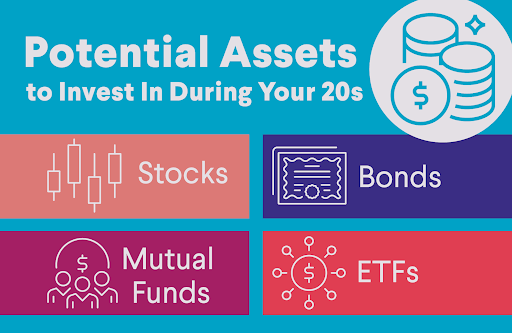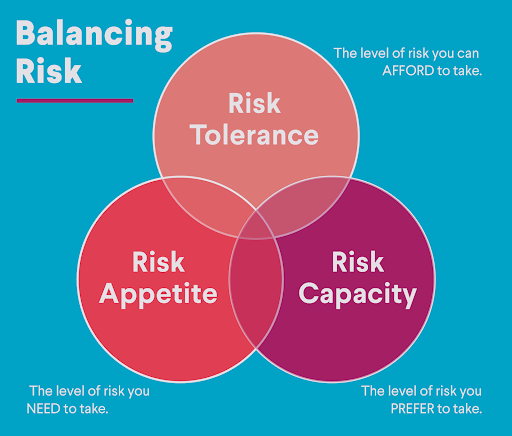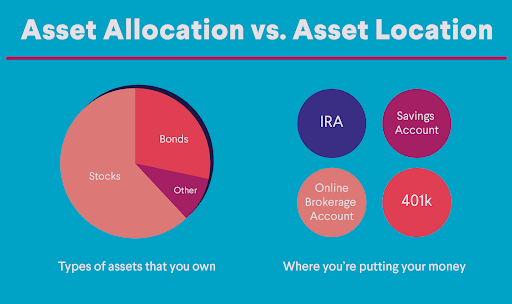How Long Do Collections Stay on Your Credit Report?
If you neglect to pay a bill for a significant period of time, your creditor may send your debt to a collection agency, which then seeks repayment from you. This can have serious — and lasting — repercussions for your credit score. Understanding how long collections stay on your credit report and how to manage them is essential for maintaining good financial health. Here’s a closer look at how debts end up in collections and how they impact on your credit.
Key Points
• If you miss multiple payments on a loan, credit card, or other bill, your account may be sold to a collection agency.
• A collection account can remain on your credit report for up to seven years.
• Paying off a collection account won’t remove it from your report but can prevent further damage.
• The negative impact of a collection on your credit score decreases over time.
• Unpaid medical debt is treated differently from other types of debt.
What Are Collections?
Having a debt in collections typically means that the original creditor or lender has written your debt off as a loss and has sent it to a debt collector. The collector may be an internal team within the same company that goes after delinquent debts or a third party debt collection agency.
Most of your monthly bills (including credit cards, mortgage, auto loan, student loans, and utilities) can go to collections if you neglect to pay them for long enough. This means that bills that might not typically appear on your credit report (electric, phone, or cable, for example) could show up on your credit report as debts in collections.
There’s no set time frame as to when a lender or company will place a past-due account into collections. Generally speaking, however, creditors will wait until after 90 to 180 days of nonpayment before they will send your debt to collections.
What Happens if a Bill Goes to Collections?
Some creditors have in-house collection departments, but many will “charge off” your debt. This means the original creditor closes your account and sells your debt to a third-party collection agency. When your account is sent to collections, the balance on your original unpaid account goes to $0, and a new collections account will be added to your credit reports. Having a collection account on your credit report is one of the many things that can affect your credit score.
Track your credit score with SoFi
Check your credit score for free. Sign up and get $10
in rewards points on us.*
RL24-1993217-B
How Long Will Collections Stay on Your Credit Report?
Like other negative information, a collection account can remain on your credit reports for up to seven years from the date you first miss a payment to the original lender or creditor. Even if you eventually pay what you owe or settle with the company that owns your debt, the collection will typically remain on your credit reports (though it will say “Paid Collection” in the account information).
Recommended: How Long Does It Take to Build Credit?
Medical Debt on Your Credit Report
Medical debt is not included in your credit reports, provided it stays with your health-care provider. If you have a medical bill that is several months overdue, the provider may sell it to a collections agency. But even if that happens, it won’t show up on your credit reports right away.
That’s because the three major credit bureaus (Equifax®, Experian®, and TransUnion®) give consumers a one-year grace period to clear up any medical debt that’s gone to collections before listing the account in your credit reports. This waiting period allows time for bills to make their way through the insurance approval and payment process. It also gives consumers a chance to report any billing errors to their insurance company and/or health care provider, perhaps negotiate a smaller bill amount, or get on a payment plan.
More good news: Medical debts under $500 will not appear on your credit reports. In addition, medical debts in collections that have been paid off are removed from your credit reports — they won’t stick around for seven years.
Managing and Preventing Collections Accounts
One of the best ways to protect your credit reports (and credit scores) is to avoid having a debt ever go to collections. Here are some tips that can help.
• Stay organized: Keep track of payment due dates by setting reminders on your phone or switching to autopay. A budgeting and spending app can help ensure you aren’t short on cash when it comes time to make your payments.
• Communicate with creditors: If you’re having trouble paying some of your bills on time, it’s a good idea to contact your creditors or service providers. They may be to offer a more manageable payment plan or offer temporary relief.
• Monitor your credit report: It’s wise to regularly check your credit reports for any inaccuracies or any accounts labeled “delinquent” (a sign they may be headed to collections).
• Establish an emergency fun: Having savings to cover unexpected expenses, like medical bills, can help prevent debt from going to collections.
If you already have an account in collections, you’ll want to make sure the debt and collection agency are legitimate and, if so, create a plan to resolve the unpaid balance. Generally, it’s a good idea to pay off the debt in collections, either as a lump sum or payment plan, so your debt can be marked “paid” and the collection agency stops contacting you.
How Collections Impact Your Credit Report and Credit Score
Collections fall under payment history, which is the biggest factor in your FICO® Score calculation (representing about 35% of your score). People with collections on their credit reports tend to have lower credit scores than those who have no collections.
How much damage a collection account will do to your credit will depend on the size of the debt, how recent the collection is, and the overall strength of your credit profile. A collection account tells future lenders that you’ve had trouble managing debt in the past, making them less likely to offer favorable loan terms or approve you for new credit.
In general, the more recent a collection, the bigger the impact. However, over time, the damage to your credit score diminishes, especially if you maintain good credit habits, like making on-time payments and keeping credit card balances low. Also keep in mind that paid collection accounts may not affect your credit scores in the same way that unpaid collection accounts can.
Recommended: How to Check Your Credit Score Without Paying
How to Find Out if You Have Accounts in Collections
There are a few different ways you may find out that you have an account in collections.
• A debt collector must contact you about your debt before it sends information about the debt to a credit reporting company. If you receive a “validation notice” about a debt from a debt collector, it means they have satisfied their requirement to contact you and can begin to report the debt to credit reporting companies.
• If you aren’t sure about the status of an unpaid bill, you may want to check your credit reports. You’re entitled to a free credit report from each of the three major credit bureaus once a week through AnnualCreditReport.com. On your report, collections accounts will appear as a separate section, listing the original creditor, the collection agency, and the outstanding balance.
• You also can contact the original creditor to learn the status of your account. Just remember that if your debt has been sold, the original creditor is no longer able to collect your debt. You’ll have to deal with the debt buyer.
• Some credit monitoring services will automatically alert you if a new collection account is added to your report, allowing you to address the issue as soon as possible.
How Do You Remove Collections From Your Credit Report?
You generally can’t remove a collection account from your credit report unless the account is listed in error or as a result of fraud.
If you see an error on your credit report, such as an account you don’t recognize or a paid account that shows as unpaid, you can file a dispute using the credit bureau’s online process by phone or by mail. The credit bureau is required to respond within 30 days.
If you think the error is on the part of the debt collector, you can contact the collection agency using the phone number listed on your credit report. They can confirm if the debt belongs to you and provide other relevant information about the account.
If the entry is legitimate, one way you might be able to get it removed from your credit reports is to write a “goodwill letter” to the creditor that explains your situation and why you would like the debt removed. It may not work, but there’s no downside in trying.
Recommended: Why Did My Cresit Score Drop After a Dispute?
When Will Credit Bureaus Remove Medical Collections?
In 2022, the three major credit bureaus agreed to remove medical collections from consumers’ credit reports once they were paid. They also decided to exclude unpaid medical collections under $500, and to extend the time before medical bills in collections can appear on credit reports from 180 days to one year. These changes provide some relief for consumers facing medical debt, giving more time to settle the bills before they affect credit.
Medical collections that meet these criteria should have automatically come off your reports, but if they are still listed on any of your credit reports, you can file a dispute with the credit bureau.
Will Making Payments Change the Timeline?
Making payments on a collection account does not restart the seven-year timeline for when the collection falls off your credit report. The original delinquency date remains the same, even if you make partial payments. However, paying off or settling a collection account can have positive effects. While it won’t immediately remove the collection from your credit report, a paid collection may be viewed more favorably by lenders than an unpaid one. It also stops the collection agency from continuing to pursue you for the debt.
But there is another timeline to keep in mind — the statute of limitations on the debt. The statute limits how long a creditor or debt collector can take legal action against you in pursuit of repayment. The time frame depends on the type of debt and where you live but is typically three to six years. Once the statute of limitations expires, the debt becomes “time-barred,” meaning that debt is no longer legally enforceable.
If you make a payment on a time-barred debt, it can restart the statute of limitations. This means the creditor can take you to court and, potentially, sue you for the full amount owed plus interest and fees.
The Takeaway
Collections can have a significant impact on your credit score, but they don’t last forever. Typically, collections remain on your credit report for seven years from the date of delinquency, but recent changes have provided some relief for medical debt.
The best way to protect your credit is to manage your accounts carefully and be sure to pay all of your bills in full and on time. If you do have accounts in collections, taking steps to resolve them — whether through payment, negotiation, or disputing inaccuracies — can help improve your financial health over time.
Take control of your finances with SoFi. With our financial insights and credit score monitoring tools, you can view all of your accounts in one convenient dashboard. From there, you can see your various balances, spending breakdowns, and credit score. Plus you can easily set up budgets and discover valuable financial insights — all at no cost.
FAQ
Should I pay off a three-year old collection?
Paying off a three-year-old collection can be beneficial, especially if you’re looking to build your credit or apply for new credit. While paying it off won’t remove it from your credit report, it can stop further damage and prevent additional actions like lawsuits or wage garnishments. Paid collections also tend to be viewed more favorably by lenders than unpaid ones. In fact, some credit scoring models don’t include paid collection accounts when calculating credit scores.
Can you have a 700 credit score with collections?
Yes, but it’s not common. Factors such as the size of the debt in collection, how old it is, and the overall makeup of your credit profile play significant roles in determining your score. If the collection is small, paid off, or several years old, and the rest of your credit history is strong, you may be able to achieve a 700 score. Larger or recent collections, on the other hand, typically have a more negative impact on your credit.
What happens if you never pay collections?
If you never pay collections, the debt will remain on your credit report as an unpaid collection account for up to seven years, significantly harming your credit score. Unpaid collections can also lead to lawsuits, judgments, and wage garnishments. On a positive note, many states have statute of limitations in place to prevent creditors and debt collectors from suing you to collect on an older debt.
Photo Credit: iStock/MixMedia
SoFi Relay offers users the ability to connect both SoFi accounts and external accounts using Plaid, Inc.’s service. When you use the service to connect an account, you authorize SoFi to obtain account information from any external accounts as set forth in SoFi’s Terms of Use. Based on your consent SoFi will also automatically provide some financial data received from the credit bureau for your visibility, without the need of you connecting additional accounts. SoFi assumes no responsibility for the timeliness, accuracy, deletion, non-delivery or failure to store any user data, loss of user data, communications, or personalization settings. You shall confirm the accuracy of Plaid data through sources independent of SoFi. The credit score is a VantageScore® based on TransUnion® (the “Processing Agent”) data.
*Terms and conditions apply. This offer is only available to new SoFi users without existing SoFi accounts. It is non-transferable. One offer per person. To receive the rewards points offer, you must successfully complete setting up Credit Score Monitoring. Rewards points may only be redeemed towards active SoFi accounts, such as your SoFi Checking or Savings account, subject to program terms that may be found here: SoFi Member Rewards Terms and Conditions. SoFi reserves the right to modify or discontinue this offer at any time without notice.
Financial Tips & Strategies: The tips provided on this website are of a general nature and do not take into account your specific objectives, financial situation, and needs. You should always consider their appropriateness given your own circumstances.
External Websites: The information and analysis provided through hyperlinks to third-party websites, while believed to be accurate, cannot be guaranteed by SoFi. Links are provided for informational purposes and should not be viewed as an endorsement.
Third-Party Brand Mentions: No brands, products, or companies mentioned are affiliated with SoFi, nor do they endorse or sponsor this article. Third-party trademarks referenced herein are property of their respective owners.
Disclaimer: Many factors affect your credit scores and the interest rates you may receive. SoFi is not a Credit Repair Organization as defined under federal or state law, including the Credit Repair Organizations Act. SoFi does not provide “credit repair” services or advice or assistance regarding “rebuilding” or “improving” your credit record, credit history, or credit rating. For details, see the FTC’s website .
SORL-Q324-022
Read more








